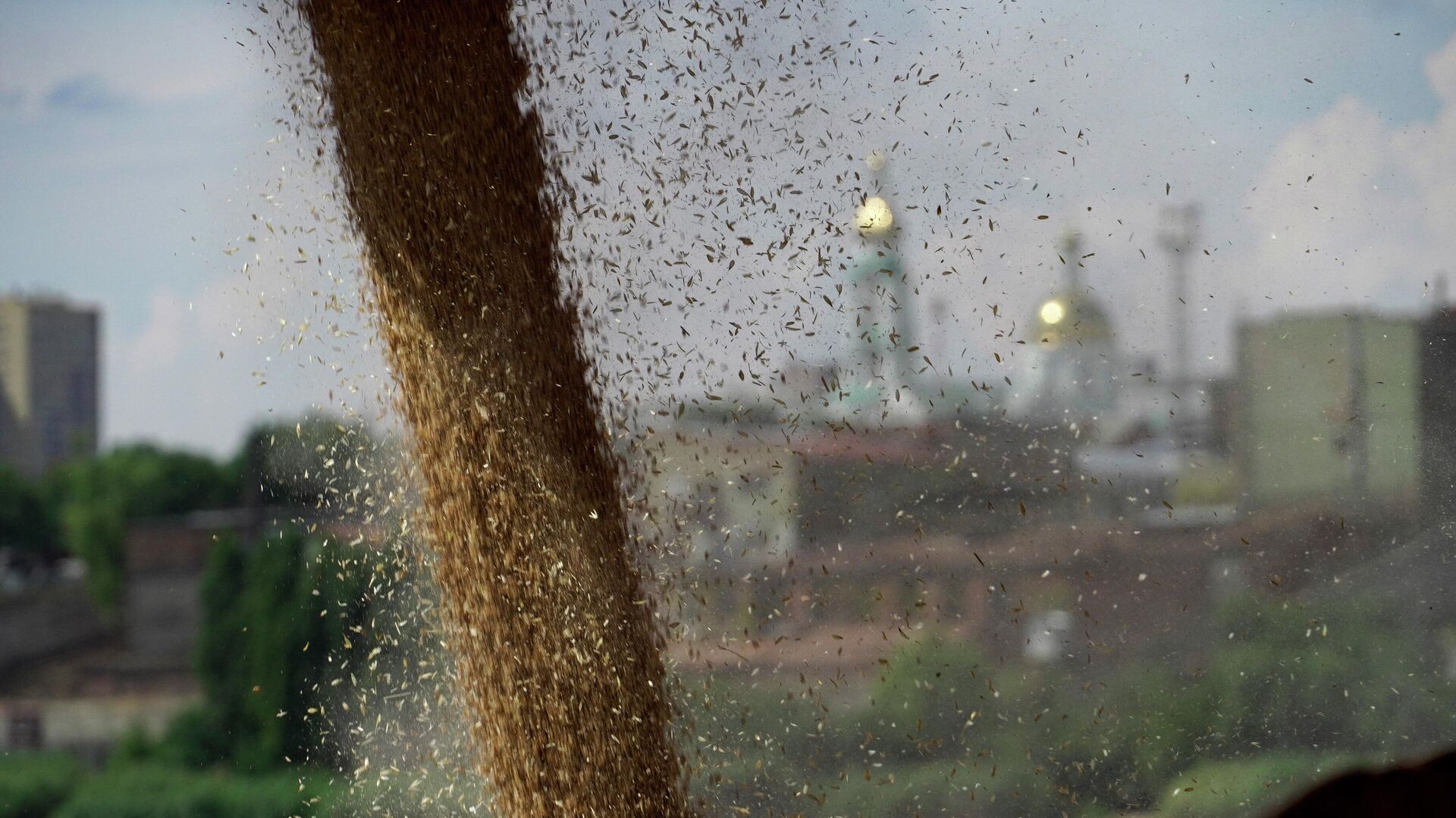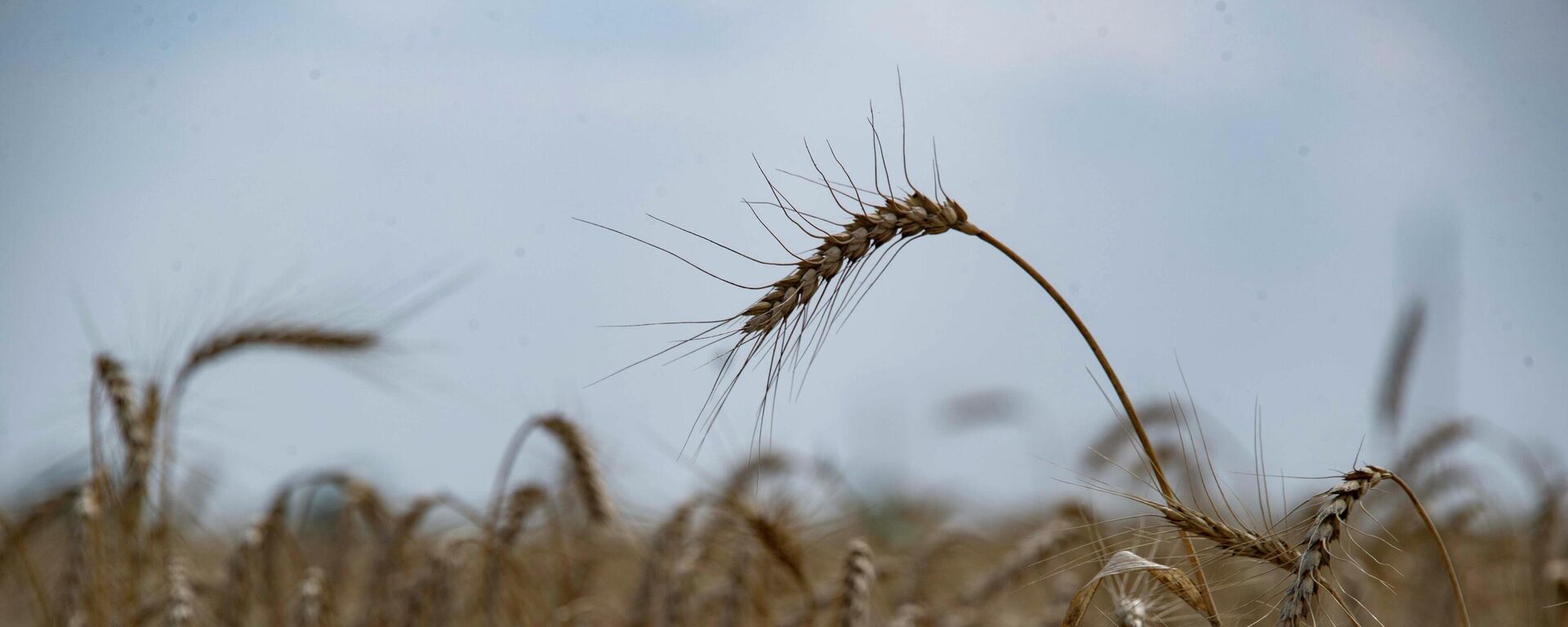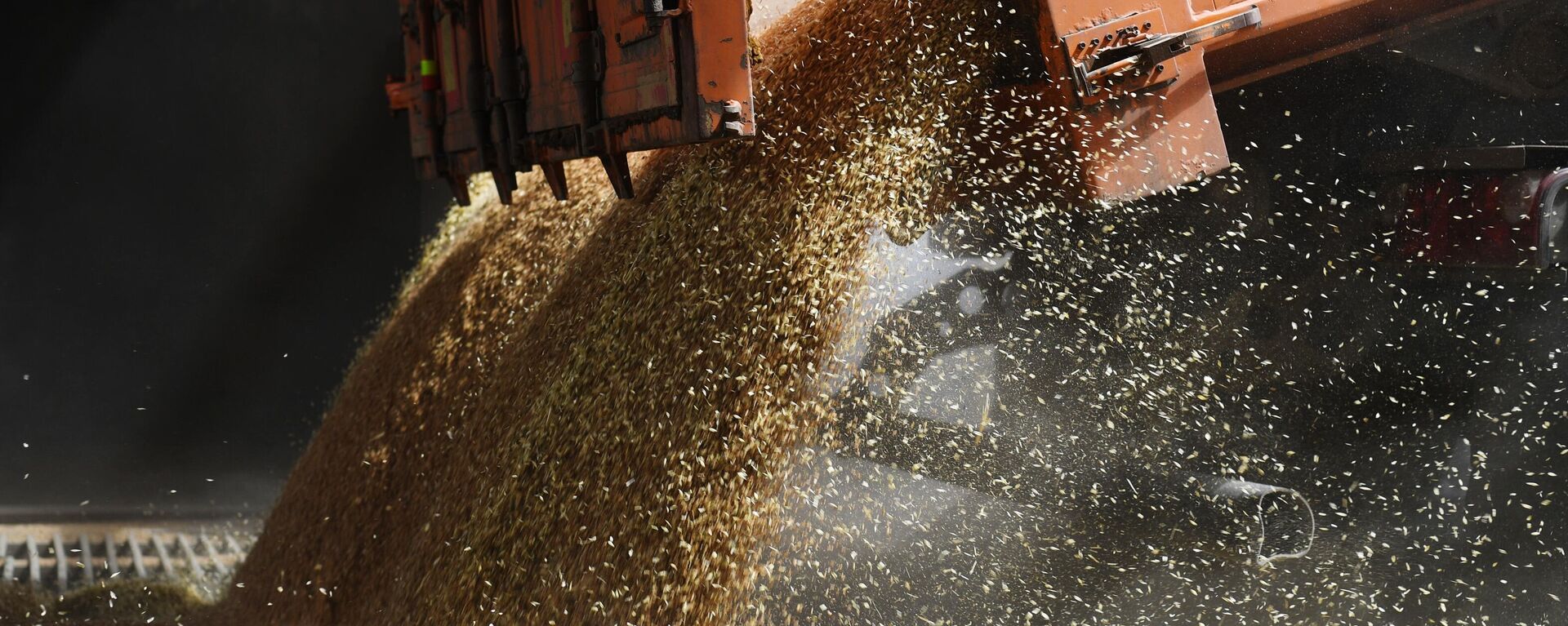https://sputnikglobe.com/20220727/turkeys-top-diplomat-reveals-how-some-powers-sought-to-block-grain-deal-to-prolong-ukraine-conflict-1097854755.html
Turkey's Top Diplomat Reveals Some Powers Sought to Block Grain Deal to Prolong Ukraine Conflict
Turkey's Top Diplomat Reveals Some Powers Sought to Block Grain Deal to Prolong Ukraine Conflict
Sputnik International
Last week, Russia and Ukraine signed a deal brokered by Turkey and the UN in Istanbul on lifting restrictions on the supply of Russian products for export and... 27.07.2022, Sputnik International
2022-07-27T13:28+0000
2022-07-27T13:28+0000
2023-07-17T11:37+0000
turkiye
mevlut cavusoglu
deal
grain exports
ukraine
black sea grain deal
https://cdn1.img.sputnikglobe.com/img/07e6/07/1b/1097854285_0:6:3618:2041_1920x0_80_0_0_736e3a17a6e1138574fe8fb7ce1dc5d3.jpg
Turkish Foreign Minister Mevlut Cavuсoglu has stated that there were countries who “wanted to block” the signing of a grain export deal inked by Moscow and Kiev last week.The remarks come as Turkish Defense Minister Hulusi Akar announced the official launch of the Joint Coordination Center in Istanbul, which will be monitoring the safe export of the grain from Ukraine via an established maritime route, in line with the grain export agreement. He stressed that all of the center's work will be coordinated by UN representatives.Akar also said that right now, no efforts are required to remove mines deployed in the Black Sea to allow for the safe passage of ships carrying grain. The minister noted that about 25 million tons of grain are due to be exported from Ukraine via three ports, including Chernomorsk, Odessa and Yuzhny.In a separate development on Wednesday, Russian Deputy Foreign Minister Andrey Rudenko told reporters that first ships with Ukrainian grain may leave Black Sea ports in the next few days.He also stressed that Moscow hopes that its partners in the Istanbul grain deal will fulfill all their obligations.“We always hope for the best and expect that our partners will also implement two components of this grain deal: concerning the export of grain from Ukraine and regarding the removal of restrictions on the export of Russian grain in general,” the deputy foreign minister said.On Monday, Russian Foreign Minister Sergey Lavrov said that no clauses of the deal prevent Moscow’s ongoing special military operation in Ukraine.He added that the West shares all-Russia related news in a "twisted" way when asked about a recent strike on the Odessa port.The remarks followed the Russian Defense Ministry stating that the country’s naval forces had destroyed a docked Ukrainian warship and a warehouse stocked with US-supplied Harpoon missiles with high-precision long-range missiles in the Port of Odessa.Grain Export Deal Last Friday, Russian Defense Minister Sergey Shoigu said that the two UN-brokered documents which were signed in Istanbul were aimed at resolving the issue of food and grain exports to the global market.He explained that the first document stipulates the UN facilitating the removal of restrictions on exports of Russian agricultural products, while the second document “defines the algorithm for the export of Ukrainian agricultural products from the Black Sea ports controlled by Ukraine. Shoigu added that Kiev is responsible for security in Ukrainian territorial waters, including the process of demining. He also emphasized that the deal would have been impossible without the active mediating role of the UN and Turkey.A UN official in turn said, referring to the deal, that Russia and Ukraine had agreed to ensure the safe passage of vessels shipping grain in the Black Sea and abstain from attacking them.Grain supplies from Ukraine ceased earlier this year amid Moscow’s special operation in the country, raising concerns about acute food shortages across the globe. The West has repeatedly blamed Russia for blocking shipments of grain, sunflower and fertilizers from Ukraine. The Kremlin has denied the accusations, noting that the crisis was provoked by Ukrainian forces, who had mined the Black Sea ports. Moscow also stressed that Western sanctions against Russian agricultural exports had added significantly to the issue.
https://sputnikglobe.com/20220725/us-state-dept-says-un-brokered-deal-to-export-ukraine-grain-needs-to-endure-1097792091.html
https://sputnikglobe.com/20220725/turkey-unaware-of-american-plan-b-on-ukrainian-grain-istanbul-deal-in-force-source-says-1097774366.html
turkiye
ukraine
Sputnik International
feedback@sputniknews.com
+74956456601
MIA „Rossiya Segodnya“
2022
Oleg Burunov
https://cdn1.img.sputnikglobe.com/img/07e4/09/0b/1080424846_0:0:2048:2048_100x100_80_0_0_3d7b461f8a98586fa3fe739930816aea.jpg
Oleg Burunov
https://cdn1.img.sputnikglobe.com/img/07e4/09/0b/1080424846_0:0:2048:2048_100x100_80_0_0_3d7b461f8a98586fa3fe739930816aea.jpg
News
en_EN
Sputnik International
feedback@sputniknews.com
+74956456601
MIA „Rossiya Segodnya“
Sputnik International
feedback@sputniknews.com
+74956456601
MIA „Rossiya Segodnya“
Oleg Burunov
https://cdn1.img.sputnikglobe.com/img/07e4/09/0b/1080424846_0:0:2048:2048_100x100_80_0_0_3d7b461f8a98586fa3fe739930816aea.jpg
turkiye, mevlut cavusoglu, deal, grain exports, ukraine, black sea grain deal
turkiye, mevlut cavusoglu, deal, grain exports, ukraine, black sea grain deal
Turkey's Top Diplomat Reveals Some Powers Sought to Block Grain Deal to Prolong Ukraine Conflict
13:28 GMT 27.07.2022 (Updated: 11:37 GMT 17.07.2023) Last week, Russia and Ukraine signed a deal brokered by Turkey and the UN in Istanbul on lifting restrictions on the supply of Russian products for export and Moscow's assistance in the export of Ukrainian grain via the Black Sea.
Turkish Foreign Minister Mevlut Cavuсoglu has stated that there were countries who “wanted to block”
the signing of a grain export deal inked by Moscow and Kiev last week.
Speaking to the Turkish broadcaster Tv100 on Wednesday, Cavusoglu said that these countries also want the Ukraine conflict “to prolong”, and that they think the longer Moscow’s special military operation continues, “the weaker Russia will be.”
The remarks come as Turkish Defense Minister Hulusi Akar announced the official launch of the Joint Coordination Center in Istanbul, which will be monitoring the safe export of the grain from Ukraine via an established maritime route, in line with the grain export agreement. He stressed that all of the center's work will be coordinated by UN representatives.
Akar also said that right now, no efforts are required to remove mines deployed in the Black Sea to allow for the safe passage of ships carrying grain. The minister noted that about 25 million tons of grain are due to be exported from Ukraine via three ports, including Chernomorsk, Odessa and Yuzhny.
"A document signed by the parties will be valid for 120 days and will be renewed unless the parties request termination”, Akar said, adding that the agreement “can also become a model for solving the energy crisis caused by the situation in Ukraine”.
In a separate development on Wednesday, Russian Deputy Foreign Minister Andrey Rudenko told reporters that first ships with Ukrainian grain may leave Black Sea ports in the next few days.
“Judging by what our Turkish colleagues, on whose territory the coordination center [on the grain deal] is located, are saying, they expect that deliveries, at least from Ukraine, will begin in the near future,” Rudenko pointed out.
He also stressed that Moscow hopes that its partners in the Istanbul grain deal will fulfill all their obligations.
“We always hope for the best and expect that our partners will also implement two components of this grain deal: concerning the export of grain from Ukraine and regarding the removal of restrictions on the export of Russian grain in general,” the deputy foreign minister said.
On Monday, Russian Foreign Minister Sergey Lavrov said that no clauses of the deal prevent Moscow’s ongoing special military operation in Ukraine. He added that the West shares all-Russia related news in a "twisted" way when asked about a recent strike on the Odessa port.
"If we talk about the episode that you mentioned, and which took place in Odessa, then there is nothing in the obligations that Russia took, including within the framework of the agreements signed on July 22 in Istanbul, which would prohibit us from continuing a special military operation, destroying military infrastructure and other military targets,” Lavrov underscored.
The remarks followed the Russian Defense Ministry stating that the country’s naval forces had destroyed a docked Ukrainian warship and a warehouse stocked with US-supplied Harpoon missiles with high-precision long-range missiles in the Port of Odessa.
Last Friday, Russian Defense Minister Sergey Shoigu said that the two UN-brokered documents which were signed in Istanbul were aimed at resolving the issue of food and grain exports to the global market.
He explained that the first document stipulates the UN facilitating the removal of restrictions on exports of Russian agricultural products, while the second document “defines the algorithm for the export of Ukrainian agricultural products from the Black Sea ports controlled by Ukraine. Shoigu added that Kiev is responsible for security in Ukrainian territorial waters, including the process of demining. He also emphasized that the deal would have been impossible without the active mediating role of the UN and Turkey.
A UN official in turn said, referring to the deal, that Russia and Ukraine had agreed to ensure the safe passage of vessels shipping grain in the Black Sea and abstain from attacking them.
Grain supplies from Ukraine ceased earlier this year amid Moscow’s special operation in the country, raising concerns about acute food shortages across the globe. The West has repeatedly blamed Russia for blocking shipments of grain, sunflower and fertilizers from Ukraine. The Kremlin has denied the accusations, noting that the crisis was provoked by Ukrainian forces, who had mined the Black Sea ports. Moscow also stressed that Western sanctions against Russian agricultural exports had added significantly to the issue.




